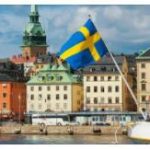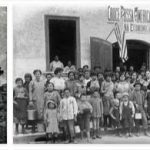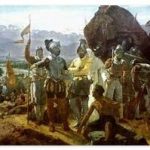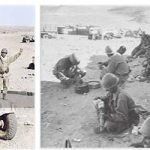5: Four out of five journalist killers go free
In the last thirty years, 58 journalists have been killed in Russia , while 87 have been killed in the Philippines . Russia is currently ranked 150th in the World Press Freedom Index , while the Philippines is 137th. The list includes 180 countries. Both in Russia and in the Philippines, the killers benefit from impunity, as very few are arrested and held accountable for their crimes.
This is part of a larger picture. From 2010 to 2020, 277 journalists were murdered around the world, but in 83 percent of the cases , no one was prosecuted or convicted. Both the Philippines and Russia are high on the list of countries with impunity, respectively in 7th and 11th place. Countries that have long experienced war, Somalia, Iraq and Syria, top this list.
In another war-torn country that is currently heavily in the news, Afghanistan, 55 journalists have been killed in the last thirty years, in addition to a number of media workers. The extreme Taliban movement recently seized power in the country for the second time. Many media outlets are already closed, hundreds of journalists have fled, and censorship is spreading rapidly, with extreme new rules for what journalists can do.
Freedom of the press varies greatly depending on where the journalists operate. The Nordic countries score best, with Norway at the top, while Eritrea, Turkmenistan, North Korea and China are at the bottom of the list. In many countries the censorship is strong, in other countries the repression is less obvious, but journalists know that they can be punished if they step over invisible borders. Thus, many practice self-censorship: They know which issues they should not write about, which areas they should not cover and whom they should not criticize.
6: Closure of networks and social media
One weapon that oppressive regimes like to resort to is the temporary closure of the Internet, and the exclusion of certain social media (such as Facebook in Iran, China and North Korea). Internet shutdowns have occurred in India (Kashmir), in Myanmar and Belarus, as well as regionally in Afghanistan.
Of course, the closure also hits the media hard. At the same time, journalism becomes particularly important in such countries. Freedom House , which examines the development of democracy at a global level, recently stated that 75 percent of the world’s population lives in states where democracy is in decline.
The decline has been continuous for the past 17 years. Examples of large countries where democracy is weakening are Brazil, India, Turkey and the United States . Especially in the USA and India, there are still strong journalistic media that oppose this development.
In addition, 54 percent of the world’s population lives in what are called autocratic countries, ie countries where power is concentrated in one person or group, without restrictions from bodies that are to ensure the sharing of power and democracy.
7: Hitler and Ossietzky
The previous journalist to be awarded the Nobel Peace Prize was the German editor and peace activist Carl von Ossietzky, who edited the newspaper Die Weltbühne . He was first arrested and imprisoned for his criticism of the arms industry in 1931, and again arrested when Hitler came to power in 1933.
Hitler declared that the press had to be «race-pure». Jewish journalists were particularly attacked, and open independent media were suppressed and shut down. German media were reduced to propaganda for the Nazis. Ossietzky ended up in a concentration camp in 1933 and died in a prison hospital in 1938.
He was to receive the Nobel Prize for 1935, but since he was in captivity, it became impossible. Adolf Hitler expressed his hatred of journalists and his strong dissatisfaction with the award.
8: Journalism is a human right
In the UN Declaration of Human Rights adopted after World War II, Article 19 states that “Everyone has the right to freedom of opinion and expression; This right includes the freedom to hold opinions without interference and to seek, receive and impart information and ideas through any media and regardless of frontiers. ”
The somewhat heavy word “means of communication” today includes both traditional news media such as TV stations and online newspapers, and social media such as TikTok, Facebook, Twitter and Instagram.
However, there are limits to freedom of expression – thus also to journalism – also in Norway, where the legislation prohibits grossly discriminatory statements and insults. Article 19 is first and foremost a signal to the world’s journalists about great freedom, but as we have seen, many countries are depriving the media of this important freedom.
9: Failure in Iraq
The Nobel Peace Prize will be awarded on 10 December. There are good arguments for linking a journalist award to peace and disarmament. A central part of the journalists’ democratic function is to monitor all bodies of power. It also includes focusing on military rearmament, arms trade and escalation of war, as Carl von Ossietzky did as editor and founder of the “Never Again War” forum as early as 1922.
In 2003, the United States attacked Iraq and started a war that is not over yet. According to THEDRESSWIZARD.COM, it has cost hundreds of thousands of lives . The attack came a year and a half after the 9/11 terrorist attacks on the United States, and the argument was that Iraq had weapons of mass destruction. Many media outlets failed in the run-up to this war, where the “evidence” that Iraq had such weapons turned out to be fabricated .
Here, a bold, revealing journalism in leading media might have made a difference between war and peace.









